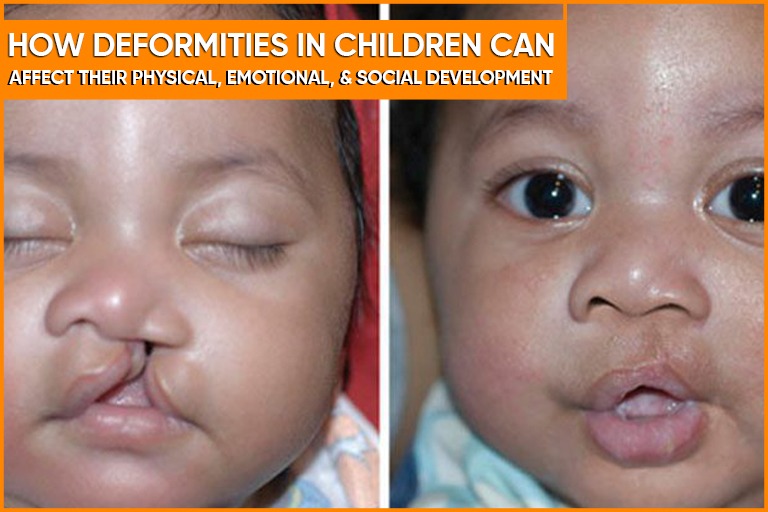Deformities in children can have a profound impact on their physical, emotional, and social development. These conditions can affect a child’s ability to move, interact with others, and develop a positive self-image. It is important to understand the different ways in which deformities can impact a child’s overall well-being and to provide the necessary support to help them overcome these challenges.
Physical Development
Deformities in children can affect their physical development in a number of ways. Depending on the type and severity of the deformity, a child may experience limitations in their mobility, strength, and coordination. For example, a child with clubfoot may have difficulty walking or running due to the abnormal position of their foot. Similarly, a child with scoliosis may experience back pain and a limited range of motion.
These physical challenges can have a significant impact on a child’s ability to engage in physical activities, which can in turn affect their overall health and well-being. Children with deformities may be less likely to participate in sports and other physical activities, which can lead to weight gain, poor cardiovascular health, and a higher risk of chronic diseases later in life.
Emotional Development
Deformities in children can also have a significant impact on their emotional development. Children with deformities may experience feelings of shame, embarrassment, and self-consciousness, particularly if their condition is visible or affects their appearance. They may also feel isolated or excluded from social activities, leading to feelings of loneliness and depression.
These emotional challenges can have a lasting impact on a child’s self-esteem and confidence. Children with deformities may be more likely to struggle with anxiety and depression, which can further impact their social and emotional well-being.
Social Development
Deformities in children can also affect their social development. Children with visible deformities may be subjected to teasing and bullying, which can further exacerbate their feelings of shame and embarrassment. They may also feel excluded from social activities, such as sports and clubs, which can limit their opportunities for social interaction and friendship.
These social challenges can have a lasting impact on a child’s sense of belonging and social support. Children with deformities may be more likely to struggle with social anxiety and difficulty forming close relationships.
Supporting Children with Deformities
It is important to provide the necessary support to help children with deformities overcome the physical, emotional, and social challenges they may face. This can include:
- Early diagnosis and treatment: Early intervention can help to minimize the physical and emotional impact of deformities, allowing children to develop and grow without limitations.
- Access to specialized care: Children with deformities may require specialized medical care and ongoing support from healthcare professionals, such as orthopedicdic surgeons, physical therapists, and psychologists.
- Positive reinforcement: Encouraging children to focus on their strengths and achievements can help to boost their self-esteem and confidence.
- Social support: Providing opportunities for social interaction and connection can help children with deformities to form positive relationships and feel a sense of belonging.
- Advocacy: Advocating for children with deformities can help to raise awareness and reduce the stigma surrounding these conditions, making it easier for children to access the support they need.
Conclusion
Deformities in children can have a profound impact on their physical, emotional, and social development. It is important to understand the different ways in which these conditions can affect children and to provide the necessary support to help them overcome these challenges. With early intervention, specialized care, and positive reinforcement, children with deformities can thrive and reach their full potential.
